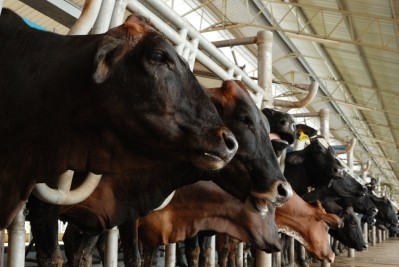Middle East’s Brazilian food imports fall 12.8%

Falling commodity prices and the weakening of Brazil’s currency contributed significantly to the fall in import value, although overall import volumes of some key food products also fell. In total agribusiness products made up 53% of all imports from Brazil to the Middle East.
Imports of Brazilian sugar, poultry and maize all fell in value, according to Brazilian government figures. But higher demand and higher prices pushed up imports of soy and beef products by countries in the region, despite bans on Brazilian beef still in place in many countries.
Ups and downs
Sales of poultry products to Middle East buyers fell 5.2% to 1.37m tonnes, around a third of Brazil’s total poultry production, and worth approximately US$2.7bn. The UAE bucked the trend of declining imports by buying 257,000 tonnes of Brazilian poultry, up 4.9% year-on-year.
Coffee also fell in volume, with imports by Arab countries falling 9% year-on-year to 1.36m bags, around 4% of Brazil’s total coffee exports. By value coffee imports from Brazil to the region totalled US$198.1m.
But Middle Eastern importers did show some evidence of broadening the range of food products they sourced from Brazil. Dairy imports tripled in value from 2013 to reach US$82.7m, while rice imports from Brazil reached US$22.7m, up from almost nothing in 2013.
Eggs on a roll
The Middle East was also the major market for Brazilian eggs, with the region importing 9,110 tonnes of eggs, or 74% of Brazil’s production. Sales to the region were up 67% year-on-year by volume, and 47% by value, at US$11.4m.
The UAE was the destination for the vast majority of the region’s Brazilian egg imports, buying up 8,710 tonnes. Saudi Arabia and Qatar were the only other regional countries to buy Brazilian eggs, with Saudi Arabia making up almost all of the rest of the volume, importing 404 tonnes in 2014, up 198% from the year before.
“Other Middle East countries are potential importers. We believe that the region will be more and more important as destination to sales of Brazilian eggs,” said Ricardo Santin, vice-president of poultry at the Brazilian Association of Animal Protein.
He said Brazil’s strong poultry exports to the region had helped promote Brazilian eggs. Promoters are now targeting other regional countries as potential markets for eggs.












